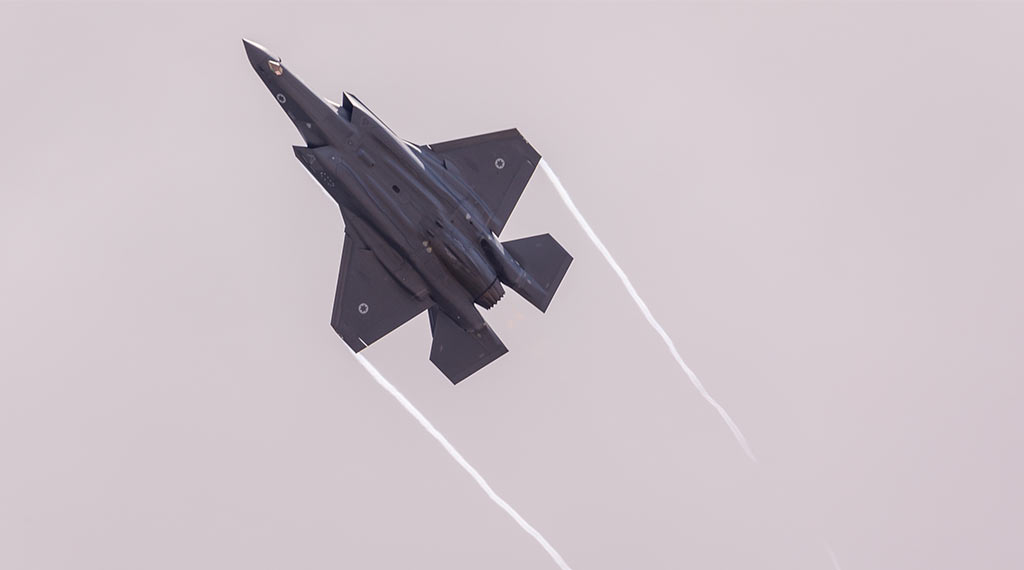
The U.S. Defense Department is banning Israeli Air Force pilots with foreign passports from flying the F-35I Adir fighter jets.
Citing information security concerns and technology leaks, American intelligence authorities are acting as a precaution against potential espionage. Israel has acquiesced to this new guideline and ceased assigning pilots to the fifth-generation airframe, according to the Jerusalem Post. The U.S. is rightfully protective of its top-of-the-line stealth fighter and has barred other acquisitions in the past.
In 2019, Turkey was expelled from the F-35 program over Ankara’s purchase of Russian S-400 missiles. The U.S. also suspended discussions with the United Arab Emirates (UAE) over its potential delivery of F-35’s in 2021 due in part to Abu Dhabi’s warming relationship with the People’s Republic of China.
Israel has a special relationship with the F-35 stealth fighter
While this action indicates that the U.S. is slightly pivoting its airframe policies for security assurances, Israel’s relationship with its F-35 Adir variant remains strong. Back in 2010, the Jewish state became the first country outside of the Lightning’s nine-nation co-development group to purchase the fighter.
Six years later, Israel’s Air Force received its initial F-35 airframe- modified with specialized add-ons. Although some defense giants did permit the production and sale of custom variants of fourth-generation airframes in the past, the F-35 manufacturer Lockheed Martin had never undergone major client state-specific modifications for the fighter before.
The Jewish state became the first nation to receive a specialized version of the F-35, equipped with alterations that would prove to serve its unique mission sets.
The IAF has proven its mastery of the “Mighty One”
Israel’s unique relationship with its F-35I Adir “Mighty One” fighter extends to its operational history. In 2018, former Chief of Israel’s Air Force Major-General Amikam Norkin revealed that his pilots had become the first to use the F-35 stealth fighter in combat.
The air force chief added that Israel had carried out a litany of strikes in Syria targeting Iranian assets as well as Hezbollah guerrillas in Lebanon. Last spring, Israel also disclosed that its fleet of F-35s had taken part in their first aerial engagements close to its border in 2021. The Israeli Defense Forces (IDF) publicized a video of an Iranian-launched drone being engaged by an F-35I. This marked the first time any F-35 anywhere had been confirmed as having destroyed airborne threats.
More recently, Israeli media outlets disclosed that the F-35I Adir variant now possessed the capability to reach targets within Iranian territory without the need of aerial refueling. This feat certainly marked a turning point for the Israeli fighter since range perhaps remains its biggest flaw. Israel’s top adversary, the Islamic Republic of Iran, is positioned nearly 1,000 miles away- making targeted strikes and assaults within its borders very challenging.
Clearly, Israel’s aerial advantage over its enemies is largely due to its fleet of specialized Adir fighters.
The U.S.-Israeli partnership won’t be jeopardized by this new guideline
Earlier this month, the U.S. and Israeli Air Forces conducted a joint-drill simulating targeted strikes. Israel’s F-35 Adir airframes from the 140 Squadron joined six F-15 jets from the U.S. Air Force Central Command (AFCENT) showcasing “joint operational activities in the region and deepening cooperation between the Israeli and American Air Forces,” according to the IDF. Just last week, the largest U.S.-Israeli partnered drill in history took place over the Mediterranean. Commander of CENTCOM Gen. Michael Kurilla said that Exercise Juniper Oak 23.2 showcased the two country’s “interoperability on land, in the air, at sea, in space and in cyberspace.” While more than 140 airframes participated in the joint-drill, Israel’s specially modified F-35I Adir likely stole the show.
America’s prioritization of safeguarding the world’s premier airframe amidst rising global tensions seems logical. Additionally, the U.S. Defense Department’s new guideline to prevent foreign passport-holding Israeli pilots from flying the F-35 does not reflect a thawing of relations between the two countries- as indicated by continuous joint exercises.
- DF-21D: China built this missile to sink US Navy aircraft carriers - April 24, 2024
- The US Navy faces a new crisis: Years of delays expected for new warships - April 23, 2024
- The secret reason the age of the aircraft carrier is over - April 22, 2024
